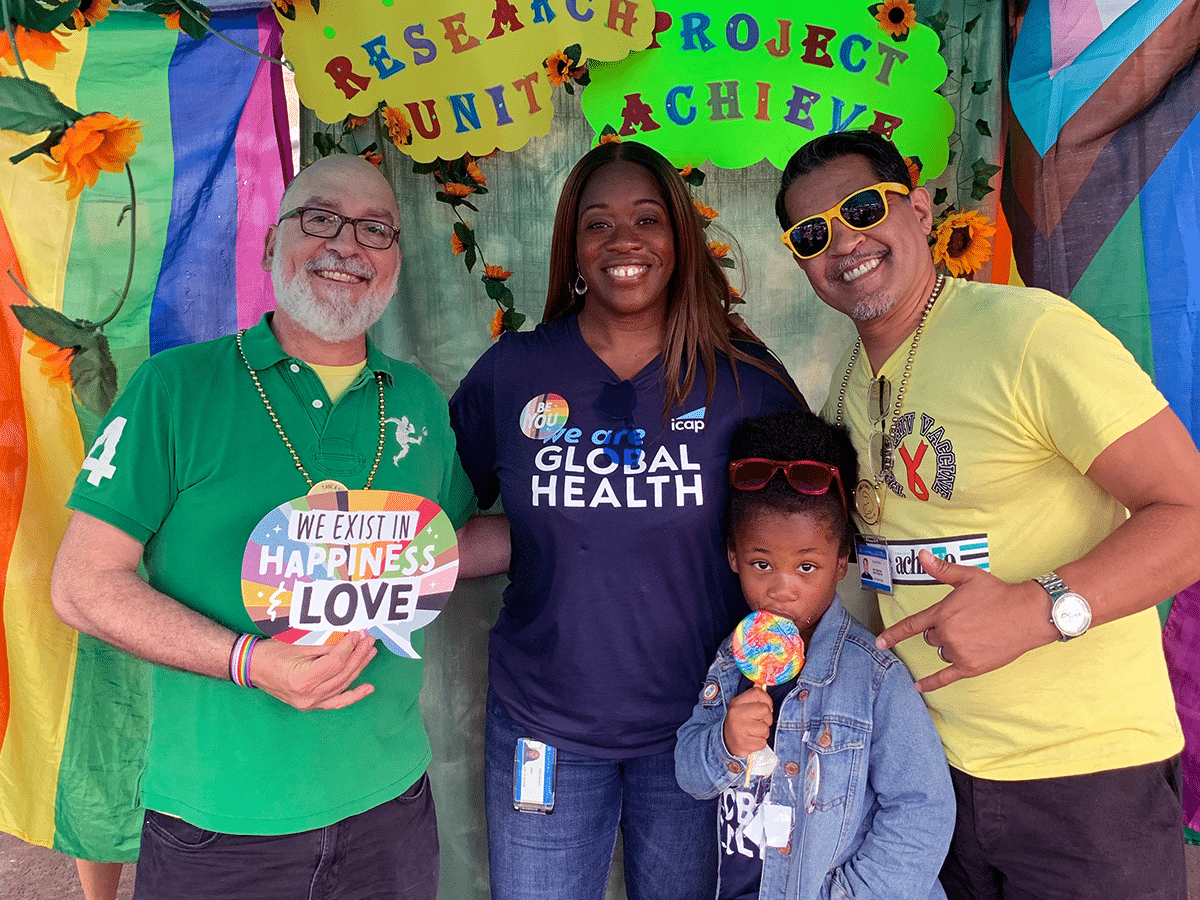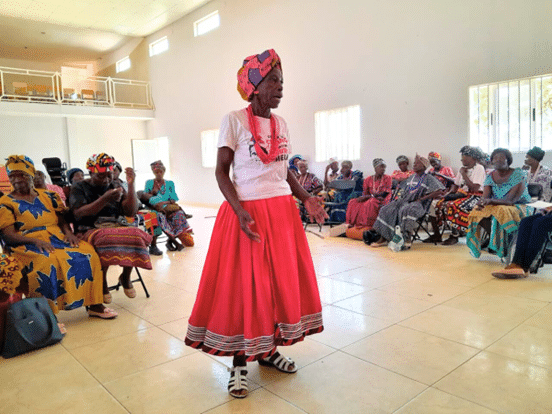On foot, via bicycle, or by car, Narciso Fausto Pedro visits the homes of clients who are often hard to reach in Nampula, Mozambique.
As an index testing lay counselor, Pedro conducts HIV testing for any contact of a client who has tested positive or is known to be positive. Many clients in rural areas live a far distance from the closest health facility and have limited access to reliable transportation, which is why the testing efforts of lay counselors are so vital. After being tested, if a client is positive, lay counselors link them to treatment, and, if negative and eligible, link them to pre-exposure prophylaxis (PrEP) for the prevention of HIV.
Supported by the U.S. President’s Emergency Plan for AIDS Relief (PEPFAR) through the Centers for Disease Control and Prevention (CDC), ICAP at Columbia University’s Advancing Sustainable Implementation of Comprehensive HIV/TB Services for Epidemic Control project in Mozambique provides integrated prevention, care, and treatment services for all priority and vulnerable populations to achieve HIV epidemic control throughout the country. In 2023, the program supported 62 health facilities in Mozambique to provide index testing services to clients.
“Index testing is an incredibly important service for breaking the chain of HIV transmission and a lifesaving strategy for early diagnosis of HIV,” said Eduarda Pimentel de Gusmao, country director of ICAP in Mozambique. “Our aim is to reduce HIV infection and HIV-related mortality among populations in the Nampula province.”
Between April and June 2023, a total of 26,279 people were identified as contacts of HIV-positive clients out of the 62 health facilities ICAP supports. After ICAP-supported teams conducted index testing, 23,792 of the contacts tested negative for HIV – and were linked to PrEP – and 2,487 tested positive for HIV – and were linked to treatment.
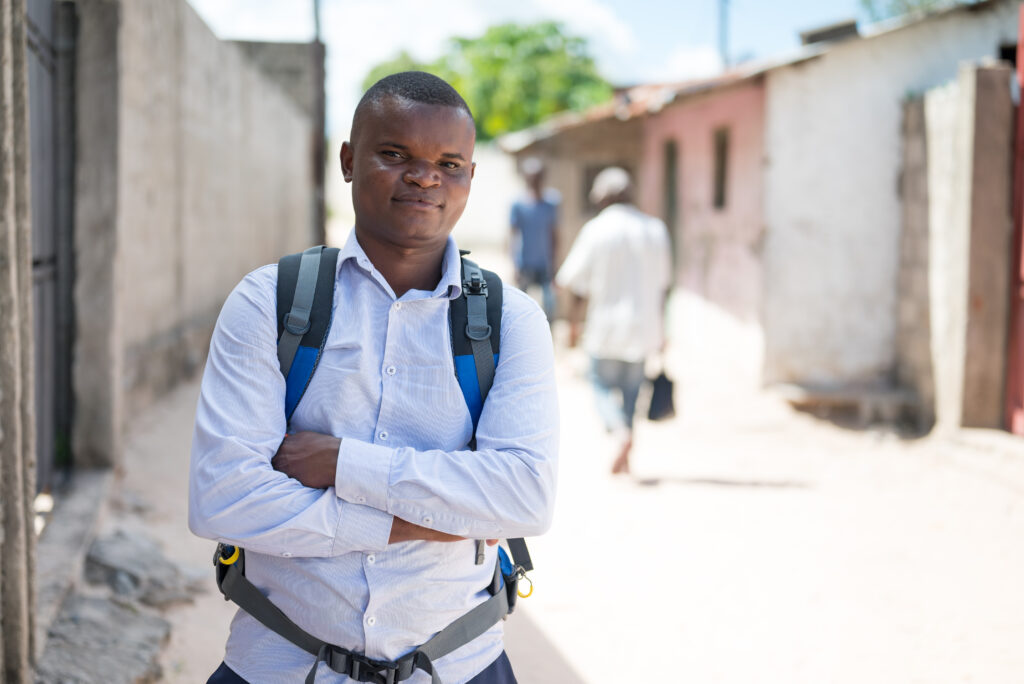
Narcisco Fausto Pedro visits a client for index testing in their community, which can only be reached by foot
For clients who may not be comfortable visiting a health facility for fear of stigma, the efforts of community workers like Pedro to visit clients in person can mean the difference between someone knowing their HIV status and not. Lay counselors receive training from ICAP on how to conduct index testing, counsel clients in accepting their status or understanding how to take PrEP, and how to utilize ICAP-supported tools to maintain client information.
Take, for example, client Atija Assane Jose, a 20-year-old woman living in Nampaco. When her husband tested positive for HIV at the ICAP-supported health facility Centro de Saúde 1 de Maio, ICAP and health staff devised a plan to test his contacts, including his wife. Pedro visited Jose with HIV testing materials and visuals in tow to help explain the process. While they both waited for Jose’s test results, Pedro explained what could happen given one of two outcomes – if negative, she could start on PrEP, and if positive, she could initiate antiretroviral treatment.
After a 15-minute wait, Jose tested negative for HIV.
“I feel really happy,” Jose said, following the delivery of her results. “I am going to start my PrEP medication tomorrow.”
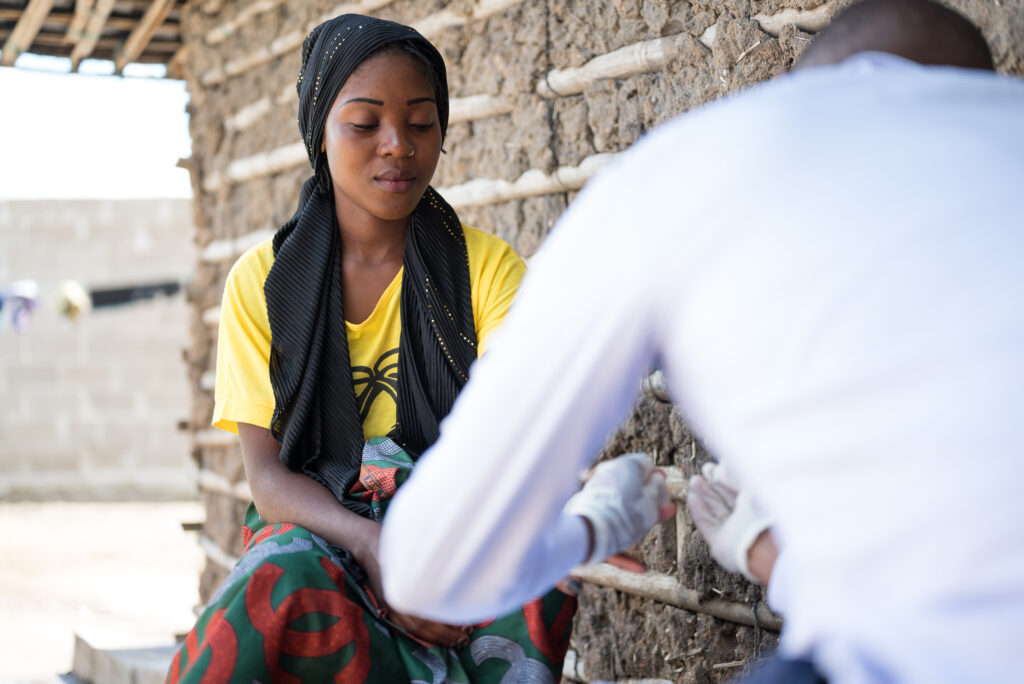
Narcisco Fausto Pedro tests Atija Assane Jose for HIV just outside of her home
Jose noted that it isn’t common in her community to discuss HIV testing openly due to stigma, which is why lay counselors like Pedro are discreet when they conduct visits, being sure to arrive at a time that is safe, convenient, and selected by the client.
In the field, Pedro also uses a vital ICAP-supported tool called an HIV Testing Services (HTS) tracker, which is a software-enabled digital platform that maintains and organizes data about client health. With the ability to use the tool offline, he inputs information in real time after he conducts an index test, for example, adding patient demographic information, testing results, home address, community leader contact, and any other information that may help identify how to best reach a client. The HTS tracker also supports lay counselors to provide counseling and screening for intimate partner violence, tuberculosis symptoms, and PrEP eligibility, strengthening linkage with essential services for clients’ overall health.
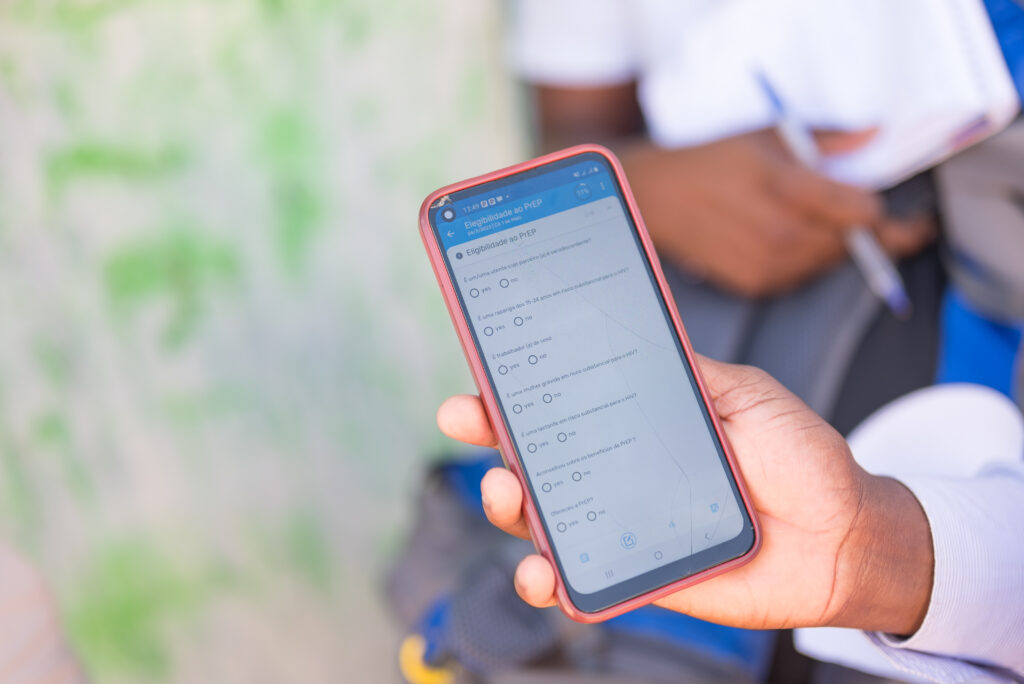
The HTS tracker is linked to the overall ICAP-supported database that tracks patients and their health information across all ICAP-supported health facilities in Mozambique
“The tool helps me manage testing dates and synchronize information so we can add it to our bigger database,” said Pedro.
“Especially if someone tests positive, they will need to start a new kind of life,” he added, considering the bigger implications of sitting side-by-side with someone when they learn of their HIV status for the first time. “I need to be prepared to show them it’s not the end of their life, but the beginning of a new one.”
About ICAP
A major global health organization that has been improving public health in countries around the world for two decades, ICAP works to transform the health of populations through innovation, science, and global collaboration. Based at Columbia Mailman School of Public Health, ICAP has projects in more than 40 countries, working side-by-side with ministries of health and local governmental, non-governmental, academic, and community partners to confront some of the world’s greatest health challenges. Through evidence-informed programs, meaningful research, tailored technical assistance, effective training and education programs, and rigorous surveillance to measure and evaluate the impact of public health interventions, ICAP aims to realize a global vision of healthy people, empowered communities, and thriving societies. Online at icap.columbia.edu





